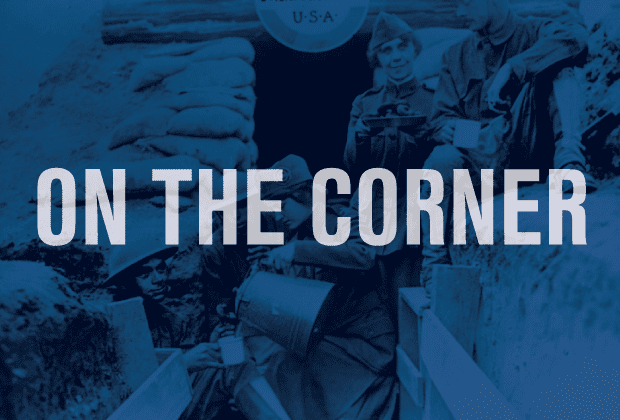By Robert Docter, Editor-In-Chief –
Gandhi listed “worship without sacrifice” as one of the world’s seven sins.
- Wealth without work
- Pleasure without conscience
- Knowledge without character
- Commerce without morality
- Science without humanity
- Worship without sacrifice
- Politics without principle
I read this the other day, and the trumpets sounded and the cymbals crashed on the statement concerning “worship without sacrifice.” It more than tweaks my conscience. It twists my brain into a turmoil and quickens my heart.
Have we, in this western culture of ours, allowed The Salvation Army to lapse into a posture of worship without sacrifice? Have we settled into our safe, comfortable pews for Sunday “church” attendance and forgotten that we’re on a “war on two fronts” (Roger Green)? Are we ignoring our theology that clearly seeks both social and spiritual redemption?
If our role in ministry, according to William Booth, is to “change the character of the people,” I hope we realize that we will never succeed in doing that, nor can this character development ever take place within someone who has slept on the urban streets of America’s cities and comes to us with an empty stomach. Attempting to achieve a change in character in those circumstances becomes almost impossible. We must first meet his/her physical needs.
In his book about “Darkest England” Booth justified our commitment to social salvation. He stated: “We engage in the first battle in order to be successful in the second. Take a man hungry and cold, who does not know where his next meal is coming from, nay who thinks it is problematical whether it will come at all. We know his thoughts will be taken up entirely with the bread he needs for his body. What he wants is dinner. The interests of his soul must wait.”
Nothing disappoints me more than to see required church attendance prior to feeding someone.
As soldiers, in most situations, we have tended to become massively uninvolved with our social ministry. Just like “good Americans” not too happy with “Getting our hands dirty,” we soldiers have escaped a significant opportunity for personal satisfaction and enrichment. We have purchased professionals to deliver our social work rather than getting involved ourselves. It provides us with an excuse to avoid the process entirely.
Professionalization, in itself, should not be seen as a negative attribute. In fact, it harmonizes beautifully with Booth’s goal.
Social work has become much more complex in relation to expertise,scope of practice, expansion of service areas and the role of government. Not everything done in the social work office requires professional skill. The problem comes in that we have failed to create roles for our soldiery and, thus, have denied them the spiritual growth that comes with helping others.
As an Army, we must not allow professional service to erode our compassion. Neither must we allow sympathy (feeling for) to substitute for empathy (feeling with.)
We need leadership at the local level to design a social redemption program that clearly identifies roles of soldiers and stimulates an expectancy of participation once a week or month or whatever is decided. A short training program would benefit this participation.
Poverty flourishes around us in its deadly vice. The median household income for a family of four in the United States is around $53,000 annually. The poverty line is somewhere around half of that, in the $23,000 range. In the Western Territory the percentage of the population living significantly below the poverty line ranges from 8.5 in Alaska to 17.1 in New Mexico (2013 statistics.)
We must not let our “feet falter on the pathway to the cross.” Albert Orsborn asks a hard question in that song (522):
“Have I worked for hireling wages,
Or as one with vows to keep,
With a heart whose love engages
Life or death, to save the sheep?”
It’s sung to the tune “The Vacant Chair,” which, in itself, raises an eerie specter.
Philip Yancey was once asked by someone what the church as an institution would look like in 100 years. He replied: “I really don’t know, but I hope it looks something like The Salvation Army.”
Me too.











